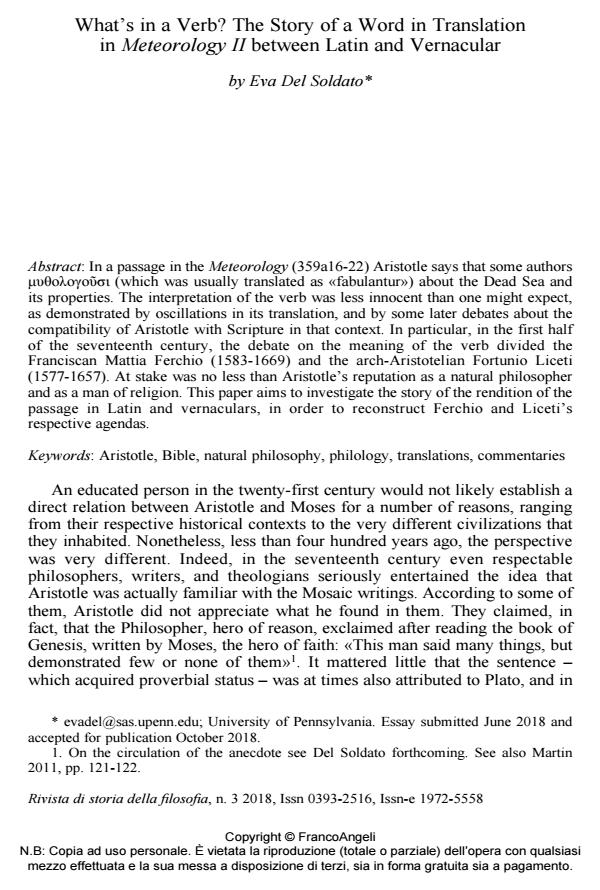What’s in a Verb? The Story of a Word in Translation in Meteorology II between Latin and Vernacular
Journal title RIVISTA DI STORIA DELLA FILOSOFIA
Author/s Eva Del Soldato
Publishing Year 2019 Issue 2019/2
Language English Pages 16 P. 327-342 File size 190 KB
DOI 10.3280/SF2019-002009
DOI is like a bar code for intellectual property: to have more infomation
click here
Below, you can see the article first page
If you want to buy this article in PDF format, you can do it, following the instructions to buy download credits

FrancoAngeli is member of Publishers International Linking Association, Inc (PILA), a not-for-profit association which run the CrossRef service enabling links to and from online scholarly content.
In a passage in the Meteorology (359a16-22) Aristotle says that some authors µ????????s? (which was usually translated as «fabulantur») about the Dead Sea and its properties. The interpretation of the verb was less innocent than one might expect, as demonstrated by oscillations in its translation, and by some later debates about the compatibility of Aristotle with Scripture in that context. In particular, in the first half of the seventeenth century, the debate on the meaning of the verb divided the Franciscan Mattia Ferchio (1583-1669) and the arch-Aristotelian Fortunio Liceti (1577-1657). At stake was no less than Aristotle’s reputation as a natural philosopher and as a man of religion. This paper aims to investigate the story of the rendition of the passage in Latin and vernaculars, in order to reconstruct Ferchio and Liceti’s respective agendas.�
Keywords: Aristotle, Bible, natural philosophy, philology, translations, commentaries
Eva Del Soldato, What’s in a Verb? The Story of a Word in Translation in Meteorology II between Latin and Vernacular in "RIVISTA DI STORIA DELLA FILOSOFIA" 2/2019, pp 327-342, DOI: 10.3280/SF2019-002009